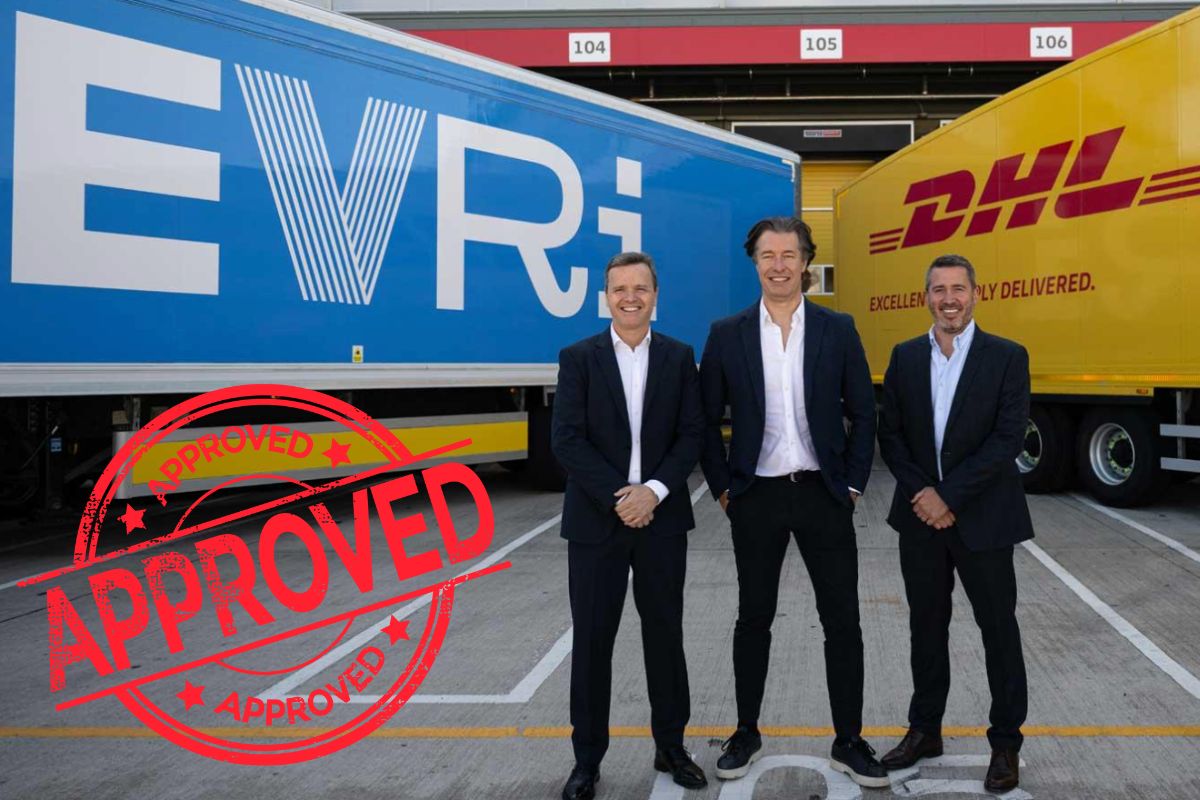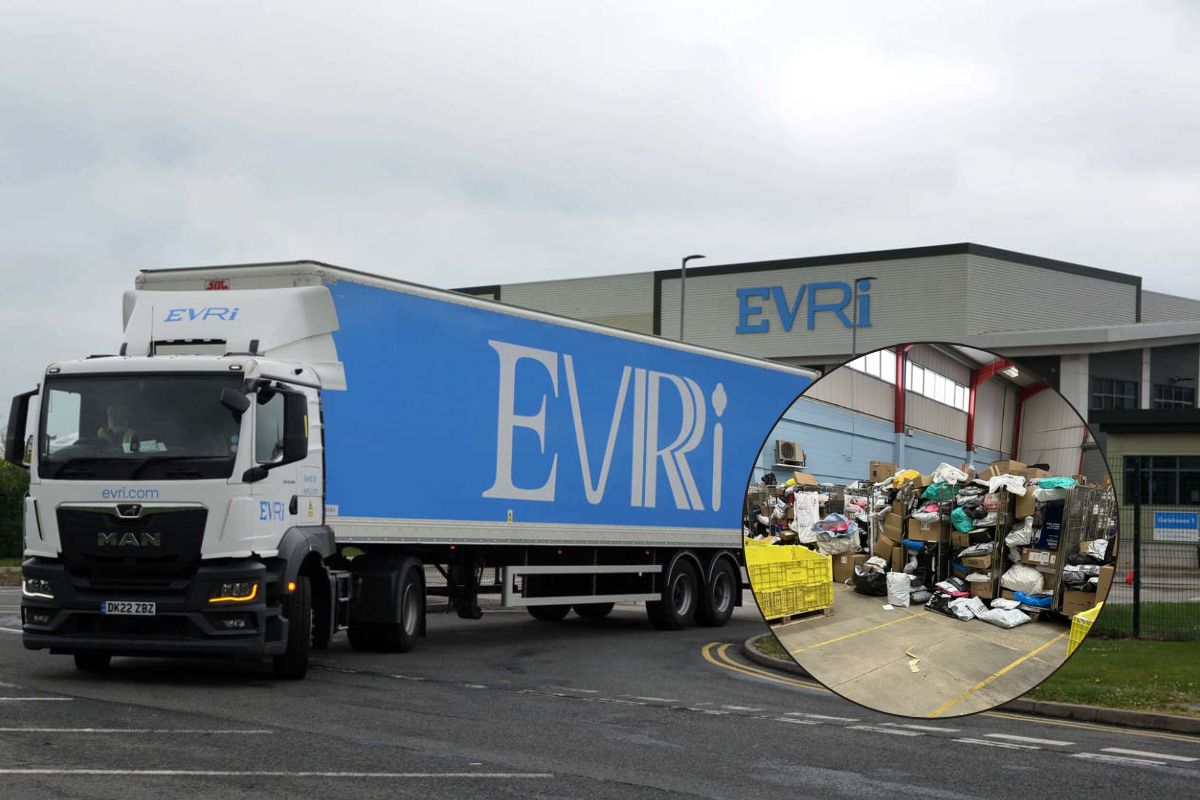The Competition and Markets Authority has handed Evri and DHL an unconditional victory, clearing their merger without any restrictions and paving the way for the creation of what could become Royal Mail’s biggest headache yet.
The unconditional CMA approval, announced today, represents a complete about-face from the thorough investigation that had industry observers questioning whether the deal would survive regulatory scrutiny.
Instead, the CMA has waved through a merger that will create a delivery behemoth handling over 1 billion parcels and 1 billion business letters annually.
The Merger That Reshapes UK Deliveries
Under the approved deal, DHL Group will take a “significant minority stake” in Apollo-backed Evri, while the combined “Evri Group” brings together more than 30,000 couriers and van drivers, 12,000 additional employees, and a fleet of 8,000 vehicles.
For the first time in its 50-year history, Evri will enter the business mail market through the acquisition of UK Mail, setting up a direct challenge to Royal Mail’s letter delivery monopoly.
DHL eCommerce UK will be rebranded as “Evri Premium” in 2026, maintaining a separate premium network for high-value and time-sensitive deliveries.
Martijn De Lange, Evri’s CEO, called it “the biggest milestone in our 50 years” and claimed the merger would create “a premier parcel delivery business of significant scale.”
Whether that scale translates to improved service quality for customers remains to be seen.
From Investigation to Unconditional CMA Approval
The CMA’s decision represents a significant shift from the detailed investigation launched in June amid concerns about market consolidation.
The regulator examined whether the merger would “substantially lessen competition” in the UK parcel delivery market – concerns that apparently evaporated during their review process.
The unconditional approval means Evri and DHL face no restrictions or requirements to sell off parts of their business, giving them complete freedom to integrate operations as they see fit.
This stands in stark contrast to other recent mergers in the sector, where regulators have demanded concessions or blocked deals entirely.
The 5,000 Courier Recruitment Drive Can Now Begin
With regulatory approval secured, Evri can finally move ahead with its ambitious plan to hire 5,000 new couriers to handle the increased business volume.
The company had announced these recruitment plans earlier in the year, but the CMA investigation created uncertainty about whether the additional workforce would actually be needed.
The majority of these new positions will be casual “Evri Flex” workers rather than permanent employees, reflecting the company’s continued reliance on gig economy labour to handle peak delivery volumes while keeping costs down.
What This Means for UK Shoppers
For consumers, the merger creates both opportunities and concerns.
On paper, the combined operation should offer more delivery options, including enhanced international capabilities through DHL’s global network and premium services for high-value items.
However, the reality is that shoppers will now face a market with one fewer major competitor.
While Evri Premium may offer improved service standards thanks to DHL’s reputation for reliability, the core Evri network – responsible for the vast majority of deliveries – will remain unchanged.
The merger also raises questions about pricing power.
With fewer major players competing for business, there’s potential for delivery costs to rise across the board, particularly for retailers who relied on competition between Evri and DHL to keep prices down.
A New Challenge for Royal Mail
The timing couldn’t be more significant for Royal Mail, which continues to struggle under foreign ownership while facing criticism over declining service standards and systematic cuts to delivery frequency.
The creation of a merged Evri-DHL operation capable of handling both parcels and business mail creates a genuine competitor across the entire spectrum of postal services.
Royal Mail’s new Czech owner Daniel Křetínský will be watching developments closely, as his strategy of reducing service standards to justify further cuts faces a direct challenge from a rival that’s expanding rather than contracting its operations.
The Deal That Almost Wasn’t
The unconditional approval caps a remarkable journey for a merger that faced serious questions about market concentration and consumer impact.
Industry observers had expected the CMA to impose conditions or demand concessions, particularly given the scale of the combined operation and concerns about reducing competition in key delivery markets.
Instead, the regulator appears to have accepted arguments that the merger would enhance rather than reduce choice for consumers, despite creating a delivery giant with unprecedented scale in the UK market.
The approval also validates Evri’s strategy of aggressive expansion despite ongoing customer service challenges, suggesting that size and market share matter more to regulators than service quality when assessing competition concerns.
Search for more information on essential services and delivery companies in our couriers section or check our retailer guides to see which delivery companies your favourite shops are using.




